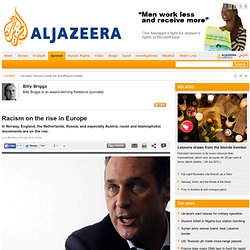

Access to the Web is a Human Right: How to Make It Happen. Two decades after creating the World Wide Web, in a speech at an MIT symposium, Tim Berners-Lee said that "access to the web is now a human right".

Probably not many people know, however, that only 25.6% of the world population has internet access. This means there are 5 billion people worldwide who cannot benefit from the well of information we all take for granted. Kosta Grammatis, an ex-avionics engineer, wants to fix this injustice. He has already started an ambitious project attempting to give the whole world “internet access as ubiquitous as the air you breathe”, as he puts it in his TEDxAthens talk. His foundation, ahumanright.org, wants to build a free communication network available anywhere in the world because just like Berners-Lee, he believes that access to information is a human right.
The plan is to recycle old infrastructure, namely the most powerful communications satellite ever made, currently owned by a bankrupted company. Read an interview with Kostas in NewScientist. Racism on the rise in Europe. In the wake of the atrocities in Norway perpetrated by Anders Behring Breivik, it is still unclear whether he was part of a wider conspiracy, but alarm bells are now ringing across Europe about the threat from far-right extremist groups.

With no end in sight to the economic crisis afflicting many nations, the growing fear is that voters are increasingly attracted to far-right parties, many of whom have been building support by opposing immigration and stirring up hatred of Muslims. In Norway, the right-wing Progress party garnered 23 per cent of the vote in the last election, making it the second-largest. And a recent poll found that half of all Norwegians favour restricting immigration. This did not go far enough for Breivik, who believed that the forced deportation of Muslims should be government policy, a radical political view he formed over time by participating in extreme online forums where he discussed his beliefs with like-minded individuals across the world. United Kingdom. Reality check: Is abortion counselling independent? 8.34am: The Commons will tomorrow debate whether to enact the biggest shake-up of the abortion rules in a generation.

The amendments, tabled by the Conservative MP Nadine Dorries, would ensure that all women who are seeking an abortion are offered "independent counselling", defined as counselling offered by either a statutory body (the NHS) or a private body that does not itself provide the termination of pregnancies. Dorries argues that the non-NHS organisations – Marie Stopes and the British Pregnancy Advisory Service - that currently provide around half of terminations are conflicted because they both advise women and provide terminations, which they are paid for. But much of the basic facts in this debate are contested fiercely by the huge lobbying operations on either side of the debate. We want to find out whether the basic premise of Dorries' claim is right.
Is abortion counselling independent? There will be other questions that arise out of this: 9.40am: She writes: How the Surveillance State Protects the Interests Of the Ultra-Rich. August 28, 2011 | Like this article?

Join our email list: Stay up to date with the latest headlines via email. In the aftermath of the riots that rocked London this summer, the Conservative prime minister's first response was to call for a crackdown on social networking. Despite data collected by the Guardian showing a strong correlation between poverty and rioting, the government denied that its brutal austerity policies contributed to the desperation and rage of its young people. Of course, we don't have widespread rioting in the US yet.
The techniques that were roundly decried by Western leaders when used by Egyptian president Hosni Mubarak against his people's peaceful revolution are suddenly embraced when it comes to unrest at home. Glenn Greenwald noted this connection in a recent piece, writing: “The last year has seen an incredible amount of social upheaval, not just in the Arab world but increasingly in the West.